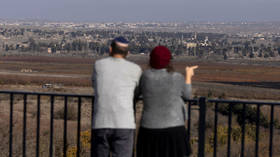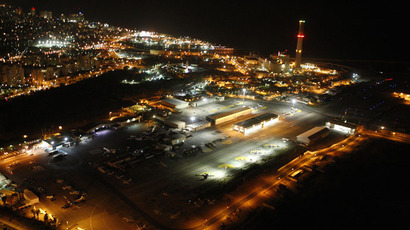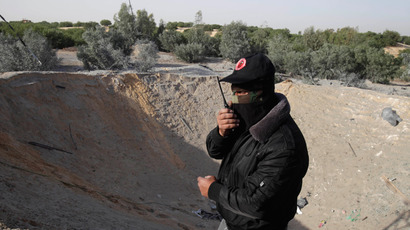Israeli bill would elevate Judaism above democracy

An Israeli MP has submitted a controversial proposal to the legislature which could grant Jewish identity priority over democracy in rulings which pertain to issues of religion and state, and also requiring Jewish communities be set up in disputed areas.
Yariv Levin, of Netanyahu’s Likud party, drafted the proposed
bill, which stated: “The land of Israel is the historical
birthplace of the Jewish people and the place of the establishment
of the State of Israel.”
It continued to grant legal status to the term “the land of
Israel” and sole Jewish affinity to it for the first time,
saying that the right to realize national self-definition is
“unique to the Jewish people.”
The bill created a storm among opposition MPs on Monday, with Labor
MP Avishay Braverman labeling the proposal a ‘disaster.’
“When David Ben-Gurion founded this country it was on the basis
of two principles: Israel was to be a Jewish and a democratic
state. Now they are trying to annex Judea and Samaria and erode the
democratic state,” he said in statement reported by local
press.
If adopted, the bill could potentially impact future court
decisions surrounding an Israeli presence in Judaea and Samaria.
The region’s status is a key contentious issue in the ongoing
Israeli-Palestine conflict.
One provision requires that the state build “Jewish
communities” in its territories, allocating resources
specifically for the purpose. However, non-Jewish communities will
have to get approval granted for construction.

It also aims to downgrade the status of Arabic as an official Israeli language, and would establish Hebrew as the sole official language in the state, but allow the Knesset the ability to bestow ‘secondary language’ status on Arabic and English.
Despite this, Levin’s proposal has made some provision for other communities within the country’s borders, stating that, “every resident of Israel, regardless of religion or nationality, is permitted to act to preserve his culture, heritage, language and identity.” Levin defended the proposal to Army radio on Monday, stating that: “It is not like there is currently a balance between a Jewish state and a democratic state and we are coming along and disrupting it. This balance has been grossly trampled on and we are here to remedy this situation.” He wrote in defense of the bill:
“The proposed law emphasizes the traditional and historical connection between the Jewish people and the land of Israel and the national rights granted to it as expressed in the Declaration of Independence.” A former incarnation of the controversial bill was scrapped after a Kadima party official, MP Dichter, attempted to introduce it in November 2011.
Included in Dichter’s 2011 submission was the statement that Israel is “the national home of the Jewish People, wherein the Jewish People fulfills its aspiration for self-determination,” causing a similar outcry and leading opposition to claim that it would harm Israel's democratic nature, making its status as a nation-state, “democratic in principle” superior to any status as a Jewish and democratic state.
Since its first introduction, the Levy Report was published, which drew the conclusion that Israel’s West Bank presence is not an ‘occupation.’
“According to international law, Israelis have a legal right to settle all of Judea and Samaria,” the report concluded, going on to claim that the establishment of Jewish settlements in the region is not illegal.
Other parties have been working on producing similar proposed laws, but their proposals are much softer, according to Haaretz.














